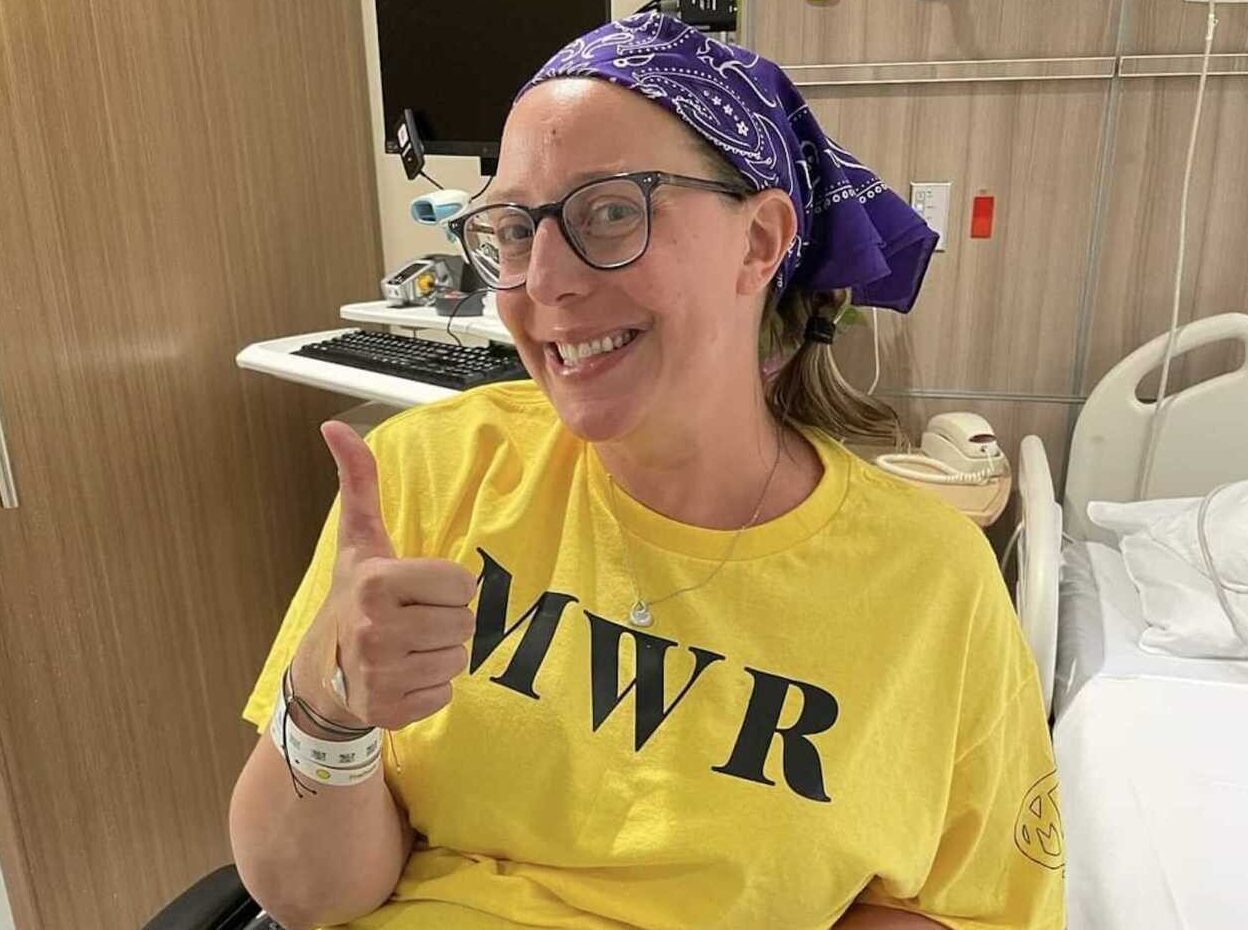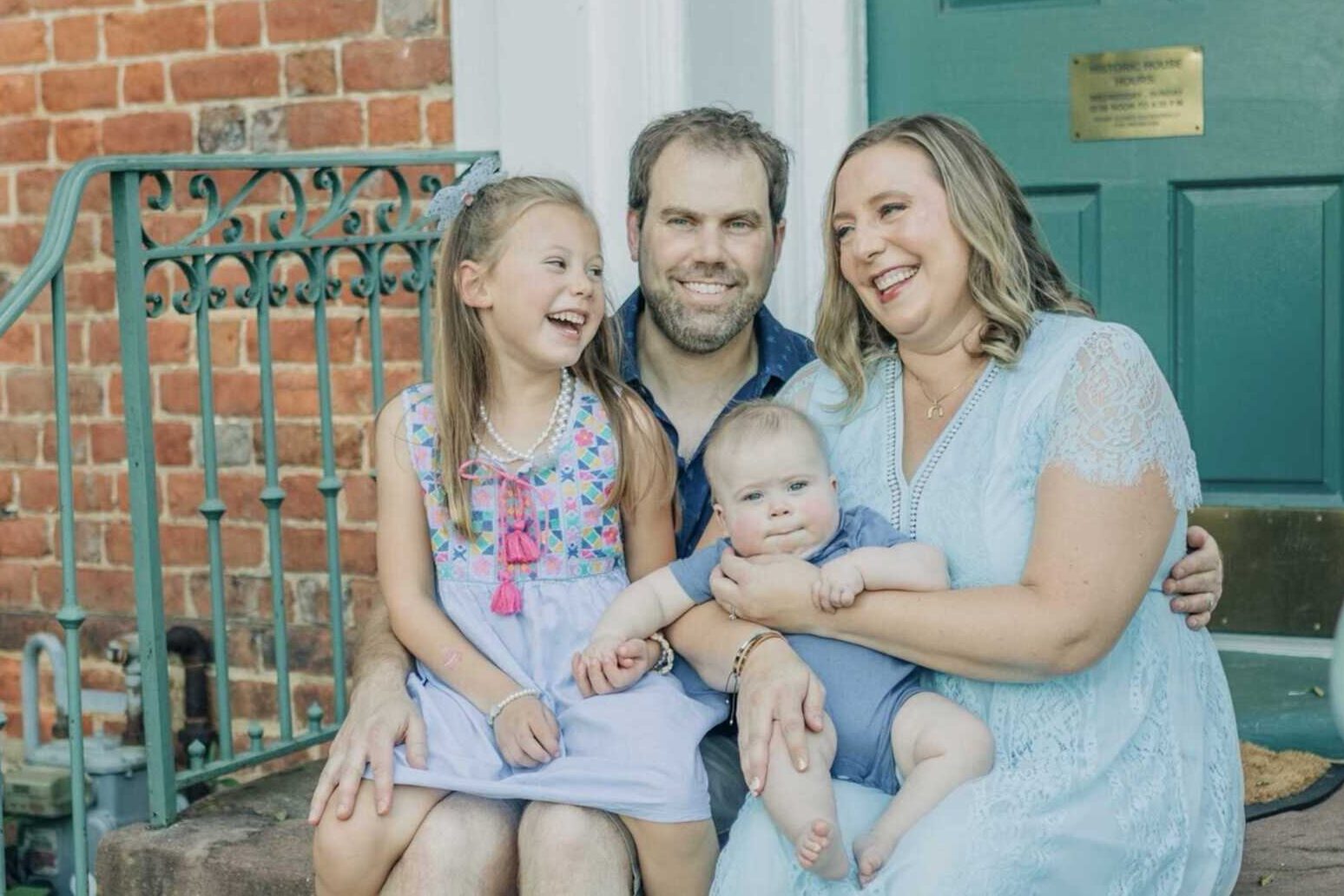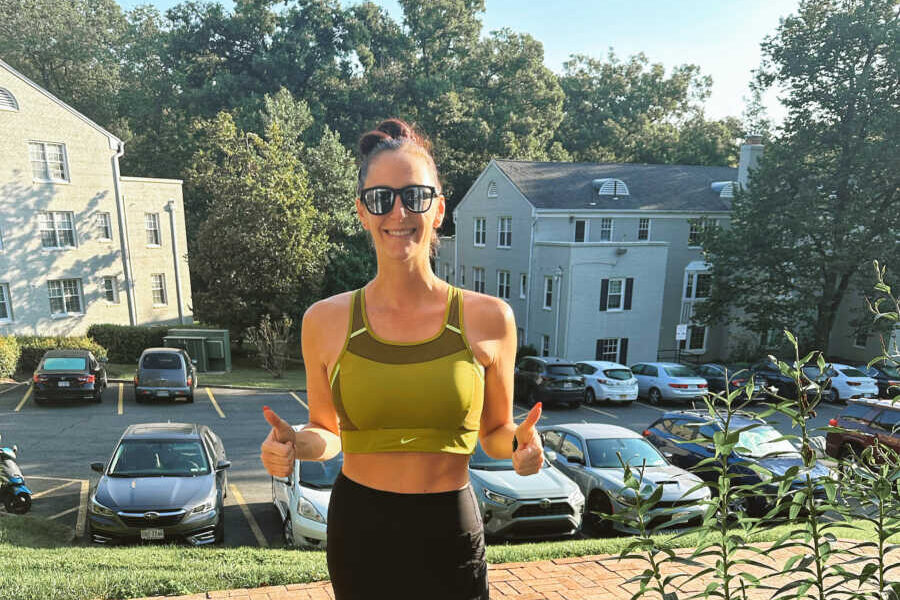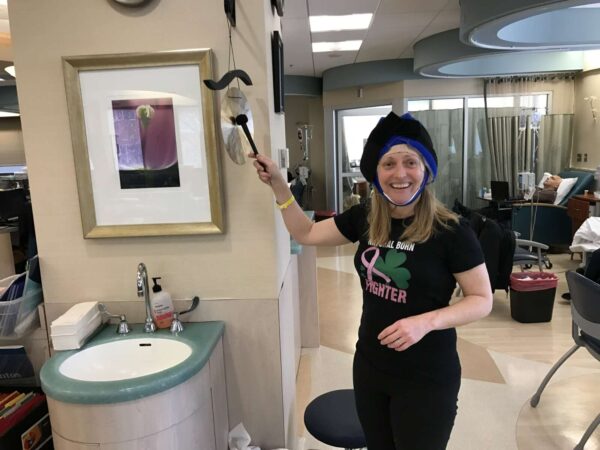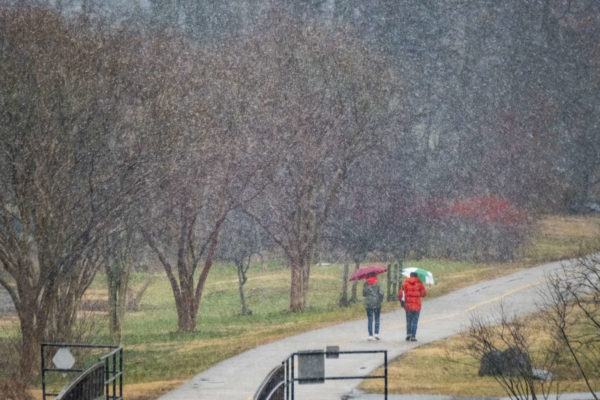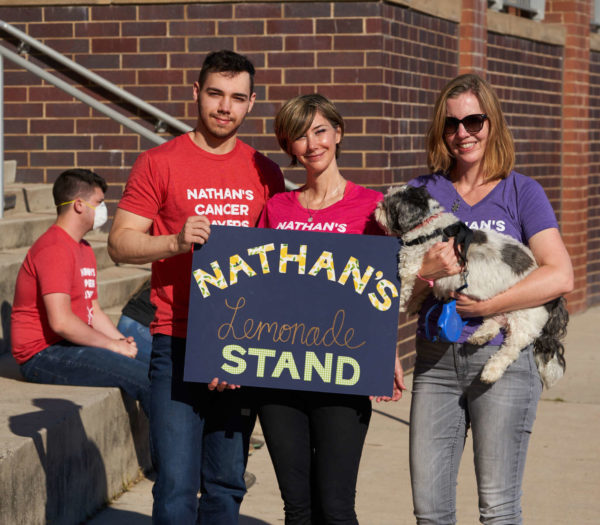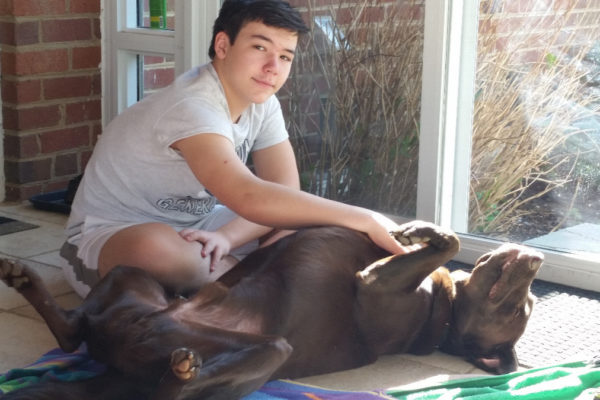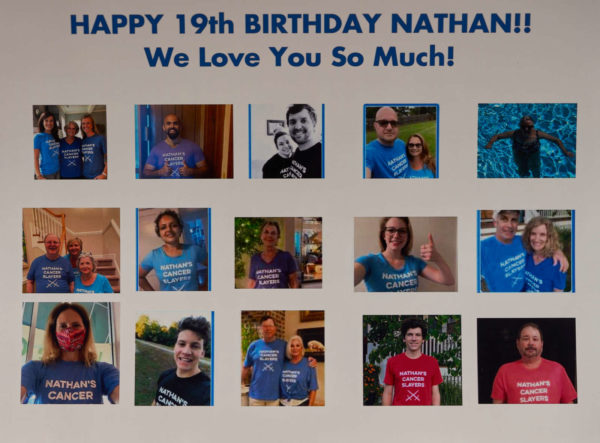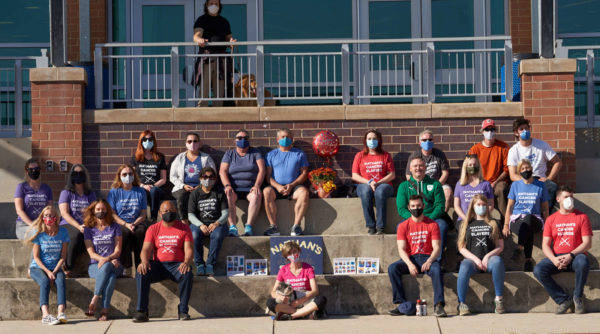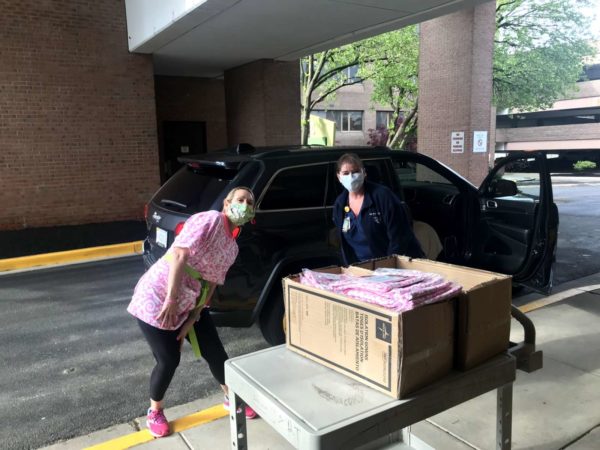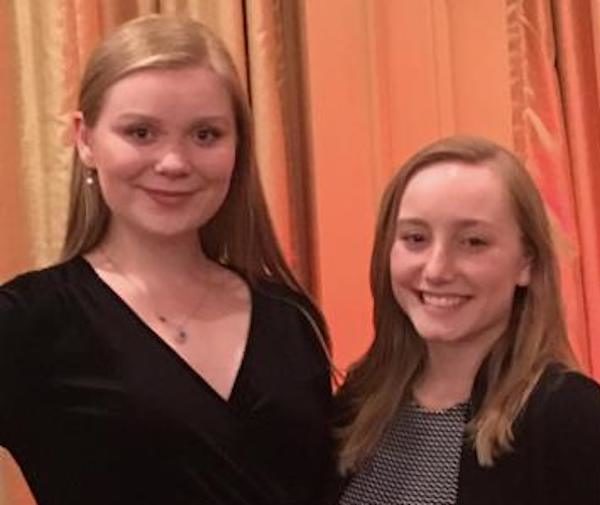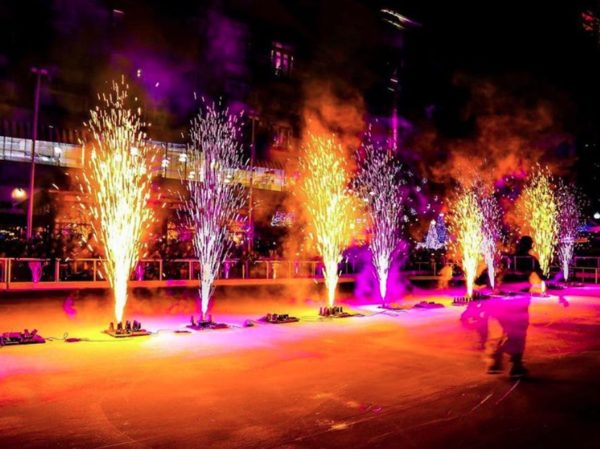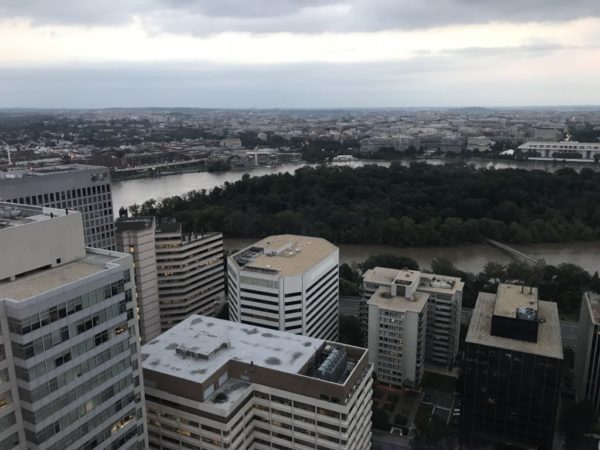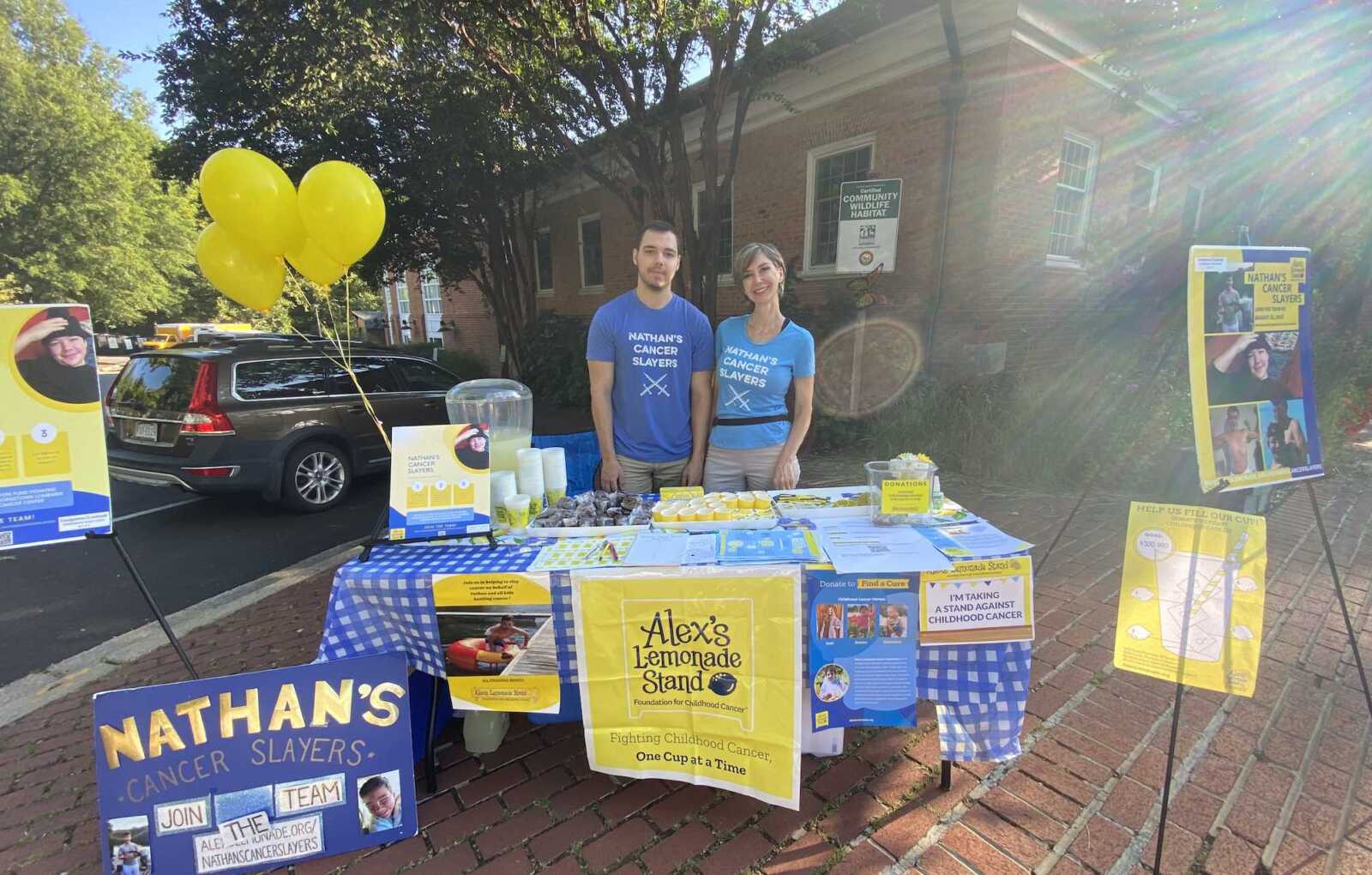
(Updated 12:07 p.m.) Michele Fleming says losing a child to cancer is the “hardest possible thing you can imagine.”
Though Fleming is still reeling from the loss of her 18-year-old son Nathan, who lost his battle with cancer in 2019, she has used that grief to raise more than $300,000 toward childhood cancer research.
“It’s honestly still very hard to talk about,” Fleming told ARLnow. “But doing this — trying to help other kids in Nathan’s honor — is very healing.”
Following Nathan’s passing, Fleming founded Nathan’s Cancer Slayers in 2020 in collaboration with Alex’s Lemonade Stand Foundation, an organization created in memory of 8-year-old Alexandra “Alex” Scott, who died of cancer in August 2004.
Since establishing Nathan’s Cancer Slayers, Fleming and her nationwide team of hundreds of volunteers have collectively raised $310,759 by hosting lemonade stands and participating in the annual “Million Mile” event, where participants of all ages log miles walked, bicycled or run throughout September to raise funds for children with cancer.
This weekend, she will be hosting another lemonade stand at Beyer Volvo in Falls Church and other local vendors have pledged to donate portions of their sales this month.
Fleming aims to raise $100,000 by the end of this year. The money would fund ongoing research by Drs. Jeff Toretsky and Aykut Üren at Georgetown Lombardi Comprehensive Cancer Center. Toretsky was also Nathan’s oncologist.
For years, Toretsky and his colleague Üren have worked to find better drug treatments for rhabdomyosarcoma, a type of cancer that develops in voluntary muscles that control movements, such as those in arms and legs. Nathan had been diagnosed with alveolar rhabdomyosarcoma, which commonly affects large muscles in the torso, arms and legs.
While Toretsky said he and Üren have made progress, one of the main challenges in pediatric cancer research is finding funding to develop a drug treatment for a specific type of cancer.
According to the American Cancer Society, approximately 400 to 500 new cases of rhabdomyosarcoma are diagnosed each year in the United States. The majority of these cases occur in children and teens, with over half affecting children younger than 10 years old. Rhabdomyosarcoma constitutes about 3% of all childhood cancers.
Because these numbers are so low, Toretsky said it is difficult to get grants from drug makers to fund the research, noting Fleming’s fundraising is a primary reason why he and Üren have been able to continue their research.


